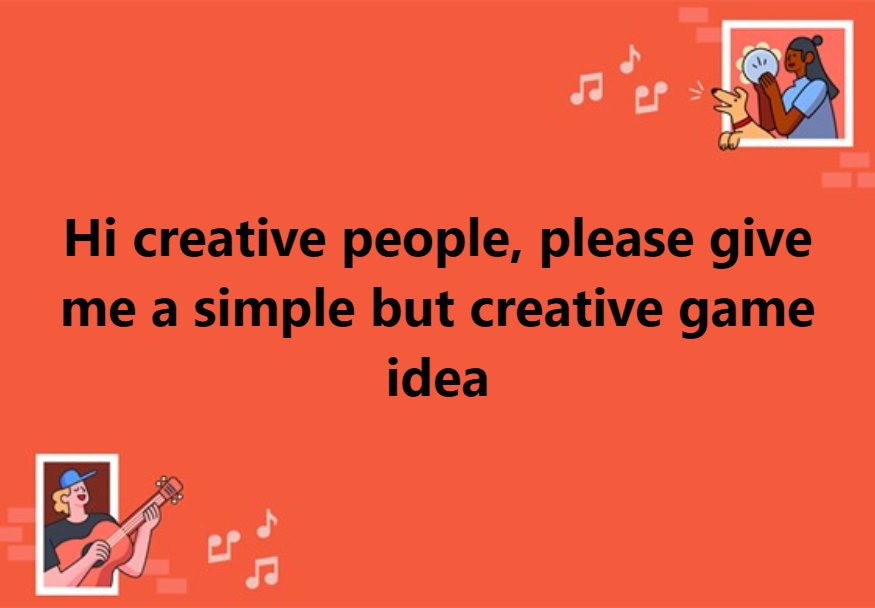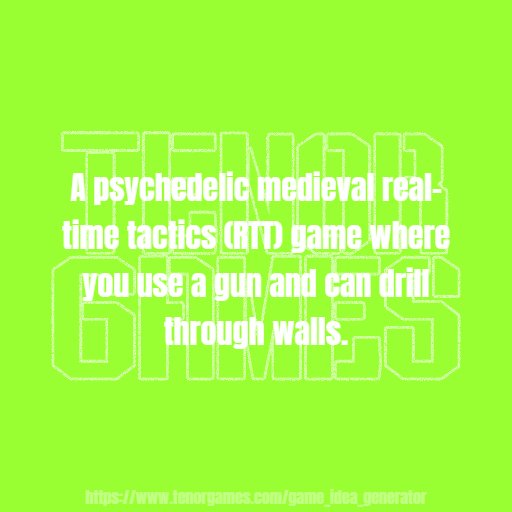
Social media page administrators must have been doing a good job because posts asking for ideas seem to have disappeared. Such questions have proven to be overly asked and they never quite seem to have ever lead to a new game.
We all know that if there is no idea, then there will be no game. Yet while ideas are free and everywhere, we do not seem to settle on one.
Here are thoughts about things people say about game ideas and how they lead to game devs not being able to settle on any game idea to work on.
Game ideas do not have to be unique
Almost naturally, most game developers want to create unique games that have not been seen before. More often than not, they would find out that even their most prized ideas that they are afraid others may steal, already exist in some form. If not, they would spend all of eternity to try thinking up something that has never been thought of before… and usually still lands on something that already has.
The thing is, we have come a very long way in games. Therefore, the chances of anything unique and original get lesser in time. This however does not spell the end of original game ideas. Game ideas when amalgamated with several done before idea bits can end up with something unique. Besides, as technology develops, applying used before ideas on new gameplay can create an altogether new experience.
Platform games probably started with Donkey Kong. When Mario became a huge success, no one complained that it is yet another platform game (it was even the same character!).
Less may be more
Triple A game companies seem to focus heavily on constantly adding more features or making complex game mechanics, believing that this justifies the value of a great game. They too have the means to do it which indie game developers usually do not.
However, the ultimate factor that makes a game great is the sense of fun. And fun does not always have to be complicated.
As I browse indie games on itch.io, most fun and interesting games seem to be borne of the principle of keeping games simple and focuses on the eventual experience of the gamers. Indie game developers often don’t have to be pressured about justifying headcounts against complex game features because most of the time, we are just by ourselves or in a small team. As such, we have that “luxury” in making the best of less, which in turn keeps costs low and allow faster time to delivery. The indie gamer market is already there waiting for our next great game.
The more ambitious the idea, the less likely it is a good one
Building on the previous point, most indie game developers don’t have the resource and bandwidth to build something complex. Besides, ambitious ideas tend to take a longer time to bring the fruition. Sustained motivation is often the bane of completing a project, and we don’t want to lose steam and abandon yet again another game development.
We often hear seasoned indie game developers propose making the quickest version of our actual game idea, and decide after getting real market feedback, whether it is wise to make a sequel or pivot with another idea. This seems very sensible because we don’t want to waste effort on an idea that we have not yet realized that not enough people would actually like it.
Also, if the idea is crazy difficult, the indie game developer may not even go very far at all before discovering that there is insufficient skill or experience to see the idea into a product.
It has to start with an idea, but execution is the more important thing
Indie game developers tend to get start in the idea phase. Ideas are often fun to discuss but when it comes to trying to turn them into products, the motivation wanes. Who wants to talk about tasks, processes, documentation and that dreadful thing called deadlines?
But these things are the determinants to whether we are going to see any game being made at all. And by means of “made”, I mean product that can be downloaded, installed, fired up and played to finish.
If we think we have an idea worth pursuing, we should settle with it quickly and see if we can work out a reasonable plan to bring it to completion. If we are able to, we would likely spend most of the time executing the difficult stuff, growing bones and flesh around the idea. The end result would hopefully be something joyful to play with.
Don’t be obsessed about others stealing our ideas
Chances are, whatever we have thought about, have already been thought about before. The difference is whether the idea has been turned into a great product or not.
I think that it is important to be opened about sharing ideas, because feedback can help give perspectives about our ideas that we may not have thought about before. In some cases, we learn early that the idea may not be a good one. In other cases, we may receive further affirmation that we are on the right track. But if we keep all our thoughts to ourselves, we have no other means of early knowledge whether we are on to something, or simply going to waste our time, effort and money.
Finally, please don’t ask for game ideas on social media pages anymore…
Well it’s not because we have had enough (although this is indeed mostly true), but ideas that are inspiring enough to be worked on tend to come from outside experiences that resonate with something intrinsic within us.
But if you want some help

If you want to have a little fun flowing some brain juices for your next game idea, or also want to send to somewhere people who are obviously desperately looking for game ideas, go take a look at my Game Idea Generator. Out of amusement, I made this tool that generates game ideas that can get you thinking, or get you cracking up. You can be sure that this idea for the Game Idea Generator is certainly not new. But what was important part was to take this idea and turn it into a product.
UPDATE: I realize that I have also written on another blog about getting game ideas. If it interests you, you may find it here: https://tenorgames.com/where-to-get-game-ideas/.